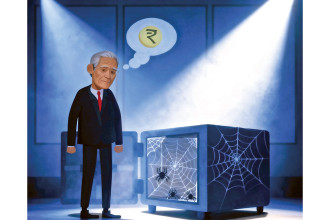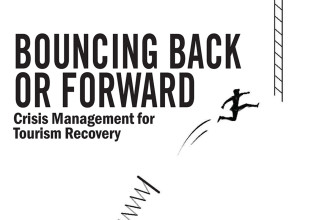
Inequalities and inequity in health and healthcare surfaced distinctly in the face of the Covid 19 pandemic. The virus and the economic lockdowns have exacerbated the gaps and health disparities creating systemic challenges in multiple areas. Shortages of critical medication and oxygen, struggle with access to care, loss of jobs and livelihoods, disproportionate number of deaths, and lack of vaccines have left the health system and the public at indefinite crossroads. It has also greatly magnified socioeconomic gaps. In this edition of Business 360, we asked some experts for their views on reducing and minimising inequalities in healthcare, the need for a sound national health agenda, engaging the private sector to become a catalyst for health equity and Nepal’s preparedness to tackle the Covid 19.
NARAYAN ADHIKARI
Governance Entrepreneur







What is your definition of healthcare equity for Nepal?
Equal access and healthcare delivery for every Nepali regardless of income, caste, ethnicity, location or religion. A system in which Nepal can provide the very best health services to its population and is fully prepared for any kind of health emergency. A healthcare system that acknowledges the Nepali social construct and hierarchy as it highly influences the access and utilisation of health services.How do we reduce inequalities in health and healthcare?
There are two sides to this: income and expenditure. On the income side, there has to be a meaningful effort to ensure that the rich pay more taxes. For too long the corrupt elite in Nepal have not paid their fair share; we have to put in place and enforce a tax regime that is progressive and provides the resources necessary to fund effective and inclusive public services. On the expenditure side, we need to make sure that healthcare funds are spent transparently and effectively. Covid 19 has demonstrated clearly how corrupt our procurement and contracting processes are; all of us need to step up to make sure the government is responsible for providing services which should be our right as citizens.What are the major vulnerabilities in our healthcare system?
Demand side: Health vulnerabilities are defined by ethnicity [eg. Dalit people from Terai are most vulnerable], income, and rural-urban divide [WHO report says health care facilities in Nepal should be within 30 minutes distance from each household, however in rural areas of Nepal it is at least 135 minutes distance]. Further, the public prefer to go to private hospitals for care as they don’t trust public hospitals. Supply side: Public hospitals cannot cater to all while private hospitals are not accessible to all [due to wage gap]. There is also a lack of health insurance/security. Furthermore, the number of healthcare professionals is also low.We need to look into diverse aspects of governance and sound economic policies if we want to see our healthcare system function for the public. After education, health should be the second priority in budget, policy making and institutional development. There is a lack of vision on what model of health care we want in nepal - public, private or mixed.
How can good governance and sound economic policies translate into a national health agenda?
Health services are not accessible to all citizens equally. There is strong nepotism and favouritism. For example, during Covid 19, beds, oxygen and ventilators were reserved for high-profile clients. Granting licenses to B&C medical colleges illegally shows how collusion by corrupt politicians and business people abuse our policies. For example, BPKHS has not been able to sustain itself in 25 years due to heavy political influence and internal governance being weak. As a result, there is a widening trust deficit between healthcare professionals such as doctors, nurses and other staff, and the administration, which is lowering the performance of health institutions. We need to look into diverse aspects of governance and sound economic policies if we want to see our healthcare system function for the public. After education, health should be the second priority in budget, policy making and institutional development. There is a lack of vision on what model of health care we want in Nepal - public, private or mixed. We need to promote social enterprise [priority, funding] for additional health facilities and health personnel in rural areas of Nepal. Junior level health assistants and community health volunteers can be skilled at scale quickly to provide primary care. Dhulikhel and Bayalpata are good examples of affordable quality health. They have embedded community outreach as a core part of their strategy.How can the private sector become a catalyst for health equity?
Mahabir Pun’s Innovation Center has helped to design and produce low cost personal equipment, maintained old equipment such as ventilators, oxygen cylinders and other machinery, and saved many lives. Other initiatives that impressed me include Covid Connects, ventilators banks, a mask bank in Nepalgunj, the hamro team, and All Time Care. The private sector can play a critical role in promoting technology in treatment and medicines as well as robust data management systems.Are there any transformative impacts you have seen or can recommend?
• It is important to ensure that citizens are engaged in the process of governance of the health sector at every step. This could include citizen monitors to bolster social accountability practices. • Other examples from the public sector include the Female Community Health Program roles and how this has motivated public health personnel. There is also the example of the Bayalpata Hospital in rural Accham which is run by a nonprofit organisation in partnership with the local government, and which has filled a critical gap in the region as Covid infections surged • Gautam Buddha Heart Hospital in Butwal is a great example of citizen involvement in establishing a low cost heart hospital. It started with help (mutthidaan) by private sector leaders. Similarly, Lions Eye Hospital established in Butwal has been providing eye services at low costs. Accountability Lab Nepal’s Civic Action Teams also battled popular rumors or myths around the pandemic with facts and proper context, helping more than half a million people to get the real story.What did Nepal’s Covid 19 response and recovery efforts teach us about building more resilient, transparent and equitable health systems?
The response and recovery efforts overall have been a disaster. Our health system collapsed because of years of neglect, corruption, mismanagement and political infighting. We need to fundamentally transform our political system to ensure that it brings through a new generation of honest, fair, diverse, accountable and values-driven leaders who can collectively steward our country towards a better future. Having inclusive infrastructure is important [such as gender and disability-friendly facilities]. It is important to set up institutions such as the Covid 19 Crisis Management Centre, but they need to be more organised and scientifically rigorous. The Covid 19 pandemic should remind us that communities were premature to accept lip service or fake promises. The government announced incentives packages to health workers, for instance, but never fulfilled them. Another important lesson we have learned is that the pandemic is about everything from responsible leadership, international relations, and proper coordination between government agencies and citizens, to the all important imperatives of fair procurement and distribution. If we don’t look into these matters holistically, we will fail to save citizens from the impact of Covid 19. Opacity creates conflict and lack of trust, whereas transparency creates trust and gains support from citizens for the government to implement its plans. We have seen continued street protests and hunger strikes to demand transparency of Covid 19 funding and policies. Had the government published that information proactively, no protest or any sort of violation of Covid protocols would have emerged. The pandemic dramatically expanded existing inequalities among social groups. The impunity also increased. Gender, caste and ethnic-based violence was at exceptionally high levels. A Dalit boy was killed because of inter-caste marriage, while two Raute girls were sexually assaulted. There were also reports of a woman in a quarantine center being gang-raped, and many other women and LGBTQ+ communities faced acute incidents of violence. There was a lack of willingness to secure the rule of law and ensure justice for victims. There were also very little proactive solutions to force the government’s hand to do the right thing. This should never be repeated in future. DR PRABIN THAPA Head & Professor of Surgery Kathmandu Medical College
What is your definition of healthcare equity for Nepal?
Healthcare equity is a healthcare facility that is available for everyone and is accessible and affordable by all. If you talk about equity as far as Nepal is concerned, there are a lot of issues like gender, social strata, ethnicity, geographical distribution, population density that come into play among other things. More specifically it is about socio economic status of the patient and their geographical location.How do we reduce inequalities in health and healthcare? What are the major vulnerabilities in our healthcare system?
The first and foremost issue is the availability of a healthcare system, we can only then talk about equity. There has to be distribution of resources and facilities and decentralisation is what will help reduce the inequalities. We have to partner with local organisations and local governments. We need to take outreach programs from the centre to the peripheries as the immediate steps. But in the long term, the outcomes can only be improved through the overall development of the country i.e. economic development and good infrastructure. We may also need to modify our treatments. My teacher used to say, you always have to think global and act local. The major vulnerabilities arise when a person cannot afford their treatment. For example, for a cancer surgery, the government provides Rs one lakh to a patient in need, however the full cycle of the treatment including chemotherapy, radiotherapy and surgery does not come for less than Rs five lakhs even in a government setting. Here, I also want to emphasise on public awareness and education.How can good governance and sound economic policies translate into a national health agenda?
Economic policy of a country that considers health and access to health of its population can significantly contribute to promoting a national health agenda. Whether it is addressing through taxation policy the access to healthcare by ensuring optimum level of disposable income available with individuals to spend on medical requirements or other measures in the government budget to reach out to the marginalised population, sound economic policy is the key. Promoting the national health industry by encouraging new technologies, to promote domestic manufacturing of equipment and supplies, and training and retaining trained human resources also needs to be reflected in the economic policy of the nation. Sound economic policy can also facilitate foreign direct investments and technology transfer for the overall growth of the domestic health sector and its related industries. This can ensure access to medical services within the country reducing dependency on foreign facilities. National health agenda as well as economic growth will be enhanced. The policies, of course, need to be combined with good governance in the course of implementation for planned benefits to translate into reality and reach to the masses.Lockdown is not the only solution. Preventing transmission of diseases and working towards early procurement of vaccines should have been done. And now, every individual should be aware and take adequate precautions, everyone needs to be responsible. In the face of what may come, we have no choice but to be prepared. The private sector should be allowed to procure vaccines. For now vaccines are the answer.
How can the private sector become a catalyst for health equity? Are there any transformative impacts you have seen or can recommend?
Yes. Ideally if a country’ government is rich, they provide a healthcare system to their citizens free of cost like in Scandinavia for example. This is a paradox really because in countries that are poor, the people have to pay from their pocket. The private health sectors are at least making health services available in the country. Though they have made the healthcare system available, we can argue about the affordability. But overall to run a private healthcare system is a very costly affair. From acquiring the land to making the building as per required standards, getting high quality equipment and gadgets is very cost intensive. If the government could provide facilities to acquire land, build hospitals, get equipment and gadgets on incentivized costs, it would help. The government should also consider a national insurance scheme. Here, I also want to say that when people cannot go outside Nepal for treatment, the gap is filled by the many private hospitals that are providing good quality care and treatments to patients and this has been made comparatively affordable to them. I feel that the private sector has done a commendable job by providing quality healthcare to the Nepali people but they should start outreach programs to support local communities in need. It’s not that it is not being done at all; it just is not sufficient.While the government needs to continue building more hospitals, in the meantime they can partner with private hospitals and reimburse the treatment cost for needy patients at subsidised cost. What did Nepal’s Covid 19 response and recovery efforts teach us about building more resilient, transparent and equitable health systems?
Frontliners need to be appreciated and encouraged more. We need to build adequate human resource, adequate infrastructure to overcome these types of situations. Human resources for government entities cannot be built in a year; they must engage health workers from the private sector. The first wave, nobody knew what was going on and we did not have any time for preparation. But before the second wave, we actually had enough time for planning and execution. Lockdown is not the only solution. Preventing transmission of diseases and working towards early procurement of vaccines should have been done. And now, every individual should be aware and take adequate precautions, everyone needs to be responsible. In the face of what may come, we have no choice but to be prepared. The private sector should be allowed to procure vaccines. For now vaccines are the answer.DR DENIS SHRESTHA Consultant Cardiologist & Managing Director Advanced Polyclinic

What is your definition of healthcare equity for Nepal?
As everywhere in the world – not just in Nepal, healthcare disparities are major issues and challenges. The disparity increases with poverty as well as with the country’s policy. Countries with socialism tend to have less disparity in healthcare - eg. Russia, Scandinavian countries, Canada, etc - where everyone has equal access to healthcare. Nepal being one of the poorest countries in the world, obviously our healthcare standards are one of the poorest in the world. The simple proof: our political leaders are going abroad for treatment.How do we reduce inequalities in health and healthcare? What are the major vulnerabilities in our healthcare system?
As long as healthcare services are paid from one’s own pocket, it is impossible to eliminate the inequalities. There will always be different private sectors that target different market segments, economically. The best hospitals will be very expensive and unaffordable to a majority. Government hospitals will be of the lowest standard, not necessarily treatment wise but service wise (timely, proper counselling, cleanliness, etc) targeted for poor and unaffordable patients. Inequalities in healthcare are a byproduct of the country’s economy, corruption, poverty and policies that follow.How can good governance and sound economic policies translate into a national health agenda?
The overall quality of health and equity in healthcare is obviously a byproduct of good governance and sound economic policies of the country.This pandemic has shown us that Covid was managed not by experts but by politicians and bureaucracy in most parts of the world. We all can see the result of it now.
How can the private sector become a catalyst for health equity? Are there any transformative impacts you have seen or can recommend?
Private healthcare should be brought under one umbrella of the healthcare budget. These private centers should be divided in area wise (ward) where it will cater to the population of that particular ward. Payments should be taken care of by government. How the government will raise funds is another issue. Partially by the national budget, partially by insurance, and partially by individual citizen contribution (e.g. mandatory 2% of salary is deducted for healthcare by the government). And private healthcare institutions can continuously improve and set new benchmarks for quality healthcare which other private institutions and government should follow. Thus, every center in the country will be providing more or less the same standards of healthcare at the same cost which will be covered by the government.What did Nepal’s Covid 19 response and recovery efforts teach us about building more resilient, transparent and equitable health systems?
Worldwide, the percentage of a country’s budget, healthcare is usually the least allocated portion compared to other sectors. As a result we have all experienced that healthcare in all parts of the world just collapsed in this pandemic. This year we have seen the budget for healthcare increased by more than 100% in most parts of the world after lessons were learnt in the pandemic. A pandemic is a medical emergency and it’s a war-like situation where resources should be allocated and reallocated just like in war times to fight the invisible enemy. The experts on transforming the resources and technology in very short time need to be consulted and listened to too. This pandemic has shown us that Covid was managed not by experts but by politicians and bureaucracy in most parts of the world. We all can see the result of it now. BIRAJ BHAKTA SHRESTHA Member of Provincial Assembly - Province 3
What is your definition of healthcare equity for Nepal?
Health care is one of the major parameters based on which the progress of a nation is assessed. Ranked at 111 th position on the Global Health Security Index, Nepal stands as a country with a crumbling health sector. The numbers of hospitals, health posts and clinics become irrelevant if such services do not reach the people in need of the same. Here, the healthcare equity comes in play where irrespective of one’s economic and social footing, health care is easily accessible to all. Evidently, we are the audience of the depleted state of our healthcare at the moment, taking into account both infrastructure and social dynamics including equity. In a country where people from certain regions cannot afford or do not have the access to health posts and simple healthcare and thus are dying from basic health issues; in a country, where irrespective of the economic reach, the people are not getting the health care service they pay for and in a country where the politicians seek to go abroad for health checkups while the citizens suffer in silence, discussing and excavating the whole issue of health care equity isn’t only an urgency but prime necessity.How do we reduce inequalities in health and healthcare? What are the major vulnerabilities in our healthcare system?
The federal system that has undertaken the huge responsibility of restructuring age-old centralised governance has the opportunity to solve such crisis if given the authority to do so. With a highly equipped healthcare system and centers offered in wards and municipalities on a local level, the mortality rate due to absence of the same can be heavily curtailed. The quality of service and skeleton of the health care units run by the government need a stringent reformation. The psychological dilemma of a person to seek medical help in private hospitals and clinics rather than in government centers is fueled by the inadequacies that the government has shown to uplift the infrastructure and service in such health care providing centers. Such decisions are rarely a choice. However, equity in health care will not be addressed only by such interventions in solitude. The economic system also needs to operate effectively where the financial status of the people also accelerates on a parallel spectrum.The psychological dilemma of a person to seek medical help in private hospitals and clinics rather than in government centers is fueled by the inadequacies that the government has shown to uplift the infrastructure and service in such health care providing centers. Such decisions are rarely a choice.
How can good governance and sound economic policies translate into a national health agenda? How can the private sector become a catalyst for health equity?
Economic policies are required to be need and priority driven and once the people’s quality of life is enhanced, then the choice to seek services also will branch out. However, the role of the private sector also cannot be overseen in this paradigm. While on one hand, health care services are considered to be carried out as ‘service’ for the betterment of humankind, one thing that cannot be denied is that private sectors operate for profit. To expect anything else from them becomes our misjudgment but there is also a fine line between ethics and profit. The responsibility of good governance thus is to keep the private sector in check too. A mechanism needs to be envisioned where the government health care system elevates to provide the best services while the profit oriented private sector keeps the principle of helping people intact. This in itself is the biggest challenge for both the sectors on this day.What did Nepal’s Covid 19 response and recovery efforts teach us about building more resilient, transparent and equitable health systems?
The fallacies of this system also became transparent specially when Covid 19 challenged the economic and the health care system of our country. It has become evident that our health care system does not incorporate equity, infrastructure and readiness when it comes to facing trying times like these. While there were many groups and initiatives led by citizens during the pandemic like a parallel movement of resistance, it also showed that the government failed miserably. The case of corruption from the side of the politicians, government and corporations that highlighted the news also shed a light on the fact that in order to create a transparent health care system that inculcates equity, all three agents of our country: Government, Private and Public sector need to work efficiently and in sync with one another. After all, health care for everyone is one of the indicators of democracy and what is democracy if not by the people, of the people and most importantly for the people.DR BISHAL DHAKAL Founder & CEO, Health At Home

What is your definition of healthcare equity for Nepal?
We have a huge population living below a dollar/day whom we also call Bottom of Pyramid (BOP) population base. This BOP is majorly rural and there is a huge disparity in access to healthcare for them. Our healthcare equity initiatives should focus on bringing more quality services to such impactful population bases. Our healthcare service should focus on affordability and accessibility without impacting quality of care.How do we reduce inequalities in health and healthcare? What are the major vulnerabilities in our healthcare system?
Our geography is the biggest challenge for delivery of accessible healthcare for vulnerable populations. Our geography i.e. terrain of mountains and hills make it complex to reach far flung residents. This coupled with affordability makes this vulnerable population avoid travel and use even free services provided by government and service providers. This is a double whammy for most of the needy population. Added with other issues of livelihood this void becomes bigger and more complex.The private sector are the best catalysts of innovation and agents for transformation. Let me put our own example. We run a social enterprise called “Health At Home”. We are a private enterprise and run as a startup. The concept of virtual healthcare and home healthcare has seen tremendous growth globally up to 600% during Covid. The appetite for remote care management and consultation has drawn good traction. Had it not been private innovation we would not have had the choice for such services to be delivered.
How can good governance and sound economic policies translate into a national health agenda?
Nepal has allocated around Rs 122 billion in the recent budget for healthcare. This is by size, the largest for this sector at a 40% hike from the regular budget size. Nepal has to get a universal healthcare model where we are guaranteed basic healthcare for every citizen by the government. We have to bring a government led insurance model for all. This clears anyone accessing public healthcare systems without hesitation. We also have to create a good robust healthcare system using private sector engagement for PPP models and also create FDI friendly policy in this sector.How can the private sector become a catalyst for health equity? Are there any transformative impacts you have seen or can recommend?
The private sector are the best catalysts of innovation and agents for transformation. Let me put our own example. We run a social enterprise called “Health At Home” . We are a private enterprise and run as a startup. The concept of virtual healthcare and home healthcare has seen tremendous growth globally up to 600% during Covid. The appetite for remote care management and consultation has drawn good traction. Had it not been private innovation we would not have had the choice for such services to be delivered. We may not have been able to support all but it has impacted tens of thousands families locally. That’s what the private sector can augment. We were ready for this service delivery when Covid hit us whereas public healthcare systems and the private hospitals were not ready at all for this required flexibility needed. So giving space for new ideas, disrupting the system with design thinking is going to be a quintessential quest for evolution forever.What did Nepal’s Covid 19 response and recovery efforts teach us about building more resilient, transparent and equitable health systems?
Nepal is a resilient society and collectively we are very, very resilient people. We have to commit now to build better institutions and that includes institutions in the healthcare sector too. We have to think of all citizens especially the vulnerable ones when we design projects and these have to be inclusive. Our public healthcare system should be able to give service to all citizens anytime, anywhere. The private sector should play a constructive role in augmenting healthcare systems with the government and the public sector. In the end, for this society to become healthy, livable and safe for all citizens, we all have to work together. It’s a collective endeavour.KISHORE K. MAHARJAN Chairman, Star Hospital

Your definition of healthcare equity for Nepal
Healthcare equity generally refers to maintenance of equal opportunity for all levels of population to have similar access to adequate and proper healthcare facilities. When we say all levels, we refer to social groups who have different levels of underlying advantages and disadvantages in the society. Such advantage/disadvantage are brought about by wealth, poverty, profession, education, power, ethnicity, etc. Nepal has very poor healthcare equity system although many INGOs and NGOs are engaged in trying to uplift the healthcare practices in backward societies of Nepal.How do we reduce inequalities in health and healthcare?
Healthcare inequalities stem from factors like race or ethnicity, religion, sex, sexual identity, age, disability, socio-economic status and geographic location. All these factors contribute to an individual’s ability to achieve good health care. It’s very important to have effective government policies which should trickle down all the way to local government bodies, practicing good governance that can address inequitable status in societies caused basically by socio-economic status, ethnicity and religion. Unless these issues are taken care of, then inequalities in healthcare system can never go away.What are the major vulnerabilities in our healthcare system?
The major vulnerabilities in our healthcare system are borne from poor economic status of the major percentage of population, poor health infrastructure of the country due to inadequate resource mobilisation capacity of the government, corrupt practices at many levels of healthcare system, low degree of knowledge amongst large mass of population about the minimum required standards of health and hygiene parameters. Under such situation, the gap between the haves and have-nots keep on widening, thus heightening the inequity position in healthcare.How can good governance and sound economic policies translate into a national health agenda?
Good governance will ensure proper assessment of the overall health situation of the country’s population. Effective monitoring could be done to check proper demography in terms of health situation – identification of underlying health conditions resulting from poverty and malnutrition, hereditary inheritances (including diabetes, hypertension and cardiovascular diseases, cancer, asthma, respiratory diseases, etc.), improper food habits, poor education/illiteracy, social practices (including the Chhaupadi practices in Western Nepal), etc. Sound economic policies can identify healthcare needs in various geographies of the country, assess the optimum financial costs for setting up necessary healthcare facilities, mobilise right amount of resources and implement sound healthcare system.Ill-timed lockdowns, political gatherings and demonstrations due to the political system’s selfishness, unsystematic handling of the vaccine purchase, wrong health policies, etc have contributed to undesired mortality and financial burdens to the population. Now that we are vulnerable to third wave of Covid pandemic, the government needs to be better prepared to handle it with prudency and sensitivity.
How can the private sector become a catalyst for health equity?
The private health sector in Nepal has been very effective in raising the standards of the healthcare system of the country. However, owing to resource constraints, inadequate government policies and low economic status of population inhabiting huge remote areas of the country, the private sector has not been able to play its full capacity role. The private sector has been instrumental in bringing in specialised treatments in the country in terms of treatment centers, equipment and retaining qualified medical practitioners in the country. No wonder, the private sector contributes to major chunk of the healthcare system in the country. If properly nurtured by the government, the role can even be much larger.Are there any transformative impacts you have seen or can recommend?
There needs to be consistency in the way the government functions. Like in all other sectors, the government’s attitude towards healthcare too is lackadaisical. The government’s thinking that the private sector hospitals too should conduct their financial transactions like a government hospital needs to be changed. The government needs to realise that the private sector have invested their personal money to build expensive facilities to launch excellent healthcare system so that large chunk of population who go abroad for treatment can get their treatment done in the country itself at far lower cost and much earlier thus preventing deterioration of the diseases. Every year several thousand Nepalese travel to Indian hospitals and spend an average of Rs 500,000 per trip, often exceeding Rs 1,000,000 per trip, more than 30% of that in transportation and hotels. The affluent population even travel to Thailand and Singapore (including our top politicians and bureaucrats). Having our own pricing structured hospitals in Nepal can save plenty of that money going abroad and make treatments possible in the country at much lesser cost, thus contributing to development of healthcare system of the country. The government should allow structured pricing in the hospitals where the privileged class pay higher and the poorer class pay lesser. This way, even poorer people can benefit from the better equipped private hospitals. Further, health related equipment should be allowed into the country tax free so that the cost of treatment can be lower. The government would benefit from the whole process through taxing on the profits of the hospitals anyway. If the government wants its citizens to be healthy, then properly structured subsidy system for the underprivileged (including low cost financing system) and health insurance system should be mandatorily introduced.What did Nepal’s Covid 19 response and recovery efforts teach us about building more resilient, transparent and equitable health systems?
Nepal’s response to Covid 19 situation has not been up to the mark. We could have emerged from the Covid 19 pandemic with better results had both the government and to greater extent the Nepali population too calculated the implications of improper addressing of the Corona virus. Ill-timed lockdowns, political gatherings and demonstrations due to the political system’s selfishness, unsystematic handling of the vaccine purchase, wrong health policies, etc have contributed to undesired mortality and financial burdens to the population. Now that we are vulnerable to third wave of Covid pandemic, the government needs to be better prepared to handle it with prudency and sensitivity. The cost of first wave and second wave has been a huge burden to our country’s fragile economy. Now that we have a new government, we look forward to formulation and implementation of more resilient, transparent and equitable health system before the country goes bankrupt.
Published Date: July 26, 2021, 12:00 am
Post Comment
E-Magazine
RELATED Opinion





